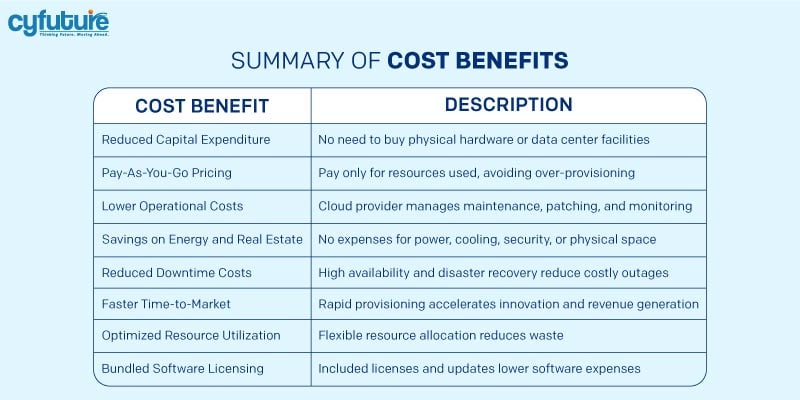-
Get Cloud GPU Server - Register Now!
Toggle navigation

In today’s rapidly evolving digital landscape, enterprises are increasingly embracing managed cloud hosting as a strategic solution to enhance operational efficiency, scalability, and security. This shift is driven by the growing need for businesses to remain competitive while navigating the complexities of modern IT infrastructure. Managed cloud hosting offers a tailored approach that combines cloud capabilities with expert management, enabling organizations to focus on their core objectives without being burdened by technical challenges.
The adoption of cloud solutions has seen exponential growth over the past decade. By end of this year, 95% of all workloads are expected to be hosted on the cloud, according to 74% of global IT decision-makers. Additionally:
These statistics underscore the pivotal role of cloud technology in modern business operations.
Managed cloud hosting refers to a service where a third-party provider manages an enterprise’s cloud infrastructure, including maintenance, monitoring, security, and optimization. Unlike traditional hosting or unmanaged cloud solutions, managed hosting offers:
Managed cloud hosting allows enterprises to scale resources dynamically based on workload demands. This is particularly beneficial for businesses experiencing rapid growth or seasonal fluctuations in demand.
Cybersecurity threats are a growing concern for enterprises globally. Managed cloud hosting providers offer advanced security protocols that safeguard sensitive data.
Managed hosting eliminates the need for costly on-premises infrastructure and reduces operational expenses through efficient resource allocation.
By outsourcing IT management tasks, enterprises can redirect their focus toward innovation and strategic growth.
Cloud migration enables organizations to respond swiftly to market changes and improve collaboration across teams.

Enhanced Security & Compliance
Cyfuture’s Managed Cloud includes:
✔ AI-powered threat detection
✔ Automated vulnerability scanning
✔ End-to-end encryption
✔ Compliance audits for RBI, SEBI, and more
Case Study: A healthcare provider achieved HIPAA compliance in 30 days using Cyfuture’s managed security controls.
Cost Savings & Predictable Pricing
*Typical savings: 40-60% compared to self-managed cloud
*How?
No need for in-house cloud teams
Optimized resource allocation
Pay-as-you-go models
Despite its advantages, transitioning to managed hosting can be complex without proper planning. Common challenges include:
Managed service providers address these challenges through detailed assessments, customized migration strategies, and ongoing support.
Emirates migrated from on-premises infrastructure to managed cloud hosting for enhanced scalability and reduced costs. The transition enabled faster booking processes and improved customer experience.
Netflix leverages managed hosting to stream content seamlessly across millions of devices worldwide. Their scalable architecture supports peak traffic during new releases without compromising performance.
Cyfuture India has helped numerous enterprises migrate successfully to managed hosting solutions tailored for their specific needs, ensuring operational excellence and cost savings.
Managed cloud hosting significantly reduces downtime and improves overall system reliability by leveraging advanced technologies, proactive management, and robust infrastructure. Here’s how it achieves these goals:
Managed cloud hosting providers offer 24/7 monitoring of systems to identify and address potential issues before they escalate into major problems. This proactive approach includes:
Real-Time Alerts: Automated tools detect anomalies, such as unusual traffic spikes or hardware failures, and notify IT teams instantly.
Preventative Maintenance: Regular updates and performance checks ensure that systems remain optimized and secure, reducing the likelihood of unexpected outages.
One of the most significant advantages of managed cloud hosting is its ability to distribute resources across multiple servers globally. This ensures:
Built-In Redundancy: If one server fails, another seamlessly takes over to maintain service continuity.
Failover Mechanisms: Critical applications are automatically redirected to backup servers during failures, minimizing disruptions.
Managed cloud environments handle software patches, security updates, and performance enhancements automatically:
No Manual Intervention: Updates are deployed across the network without requiring downtime.
Latest Security Features: Ensures that systems are always running on the most secure versions, reducing vulnerabilities that could lead to downtime.
Managed cloud hosting provides scalable infrastructure that adjusts resources dynamically based on demand:
Elastic Scaling: During traffic surges or peak usage periods, additional resources are allocated instantly to avoid overloading servers.
Optimized Resource Utilization: Prevents system crashes caused by resource exhaustion.
Cloud platforms offer centralized dashboards for monitoring and managing infrastructure:
Unified Visibility: IT teams can oversee all components from a single interface.
Streamlined Operations: Simplifies scheduling, testing, and deploying updates across the organization
Managed cloud hosting includes robust disaster recovery protocols:
Automated Backups: Data is backed up regularly across multiple locations.
Quick Recovery Times: In case of an incident, systems can be restored rapidly with minimal data loss.
Managed cloud hosting ensures high availability and reliability through proactive monitoring, redundancy, automated updates, scalability, centralized management tools, and disaster recovery solutions. These features make it a preferred choice for enterprises aiming to minimize downtime and maintain seamless operations in today’s competitive digital landscape.
AI-Driven Cloud Optimization
Cyfuture.AI automates:
Cost management
Security patching
Performance tuning
Seamlessly manage:
Private clouds
Public clouds (AWS/Azure/GCP)
Edge computing nodes
The managed cloud hosting landscape is rapidly evolving, driven by advancements in AI, edge computing, sustainability, and autonomous infrastructure. Here’s a breakdown of the four key trends shaping the future:
What It Means:
AI-Ops (Artificial Intelligence for IT Operations) uses machine learning and big data analytics to automate cloud management tasks like monitoring, troubleshooting, and optimization.
Why It Matters:
Example:
Cyfuture’s AI-powered cloud management automatically scales resources during traffic spikes and applies security patches in real time, reducing downtime by 40%.
What It Means:
Edge computing brings data processing closer to the source (IoT devices, sensors, mobile users) instead of relying solely on centralized cloud servers.
Why It Matters:
Example:
A manufacturing plant uses Cyfuture’s edge cloud to process sensor data in real time, reducing latency from 200ms to under 10ms.
What It Means:
Cloud providers are adopting energy-efficient infrastructure (renewable energy, liquid cooling, AI-driven power management) to reduce carbon footprints.
Why It Matters:
Example:
Cyfuture’s solar-powered data centers in India reduce CO₂ emissions by 35% while maintaining 99.99% uptime.
What It Means:
Why It Matters:
Example:
A fintech startup uses Cyfuture’s serverless cloud to handle payment processing during peak sales, scaling from 100 to 10,000 requests/sec seamlessly.
Here are some additional key statistics highlighting the importance of managed cloud hosting:
Enterprises are migrating to managed cloud hosting not merely as a trend but as a necessity in today’s competitive business environment. The ability to scale resources dynamically, enhance security measures, optimize costs, and focus on strategic objectives makes managed hosting an indispensable solution for modern organizations.
Cyfuture India stands at the forefront of this transformation by offering cutting-edge managed hosting services tailored for diverse industries. With a proven track record in delivering reliable solutions that drive growth and innovation, Cyfuture India empowers businesses to thrive in the digital age while ensuring seamless operations.
As enterprises continue their journey toward digital transformation, managed cloud hosting will remain a cornerstone for achieving operational excellence and staying ahead in an ever-evolving market landscape.